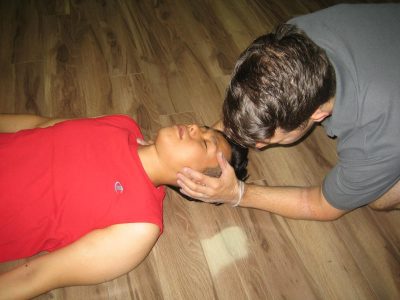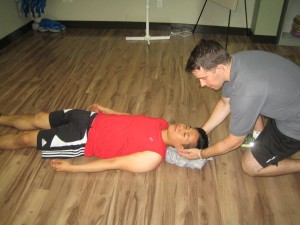The symptoms of a concussion can range from mild to severe. In some cases though, emergency treatment might be required. The most common symptoms of a concussion include the following:
- Headache
- Confusion such as a delay in responding to questions, unaware of his/her surroundings or having a blank expression
- Dizziness
- Nausea
- Balance loss
- Difficulties with memory
- Feeling dazed or stunned
- Disturbances with vision such as blurred vision, double vision or “seeing stars”
If the individual has difficulties with memory, he/she is unable to remember events before the concussion occurred. This only affects minutes immediately leading up to the concussion which is called retrograde amnesia.
In case the individual could not remember any new information or events after the concussion occurred, it is called anterograde amnesia. Take note that both types of memory loss typically improve within a few hours.
What are the uncommon symptoms?
- Slurred speech
- Changes in behavior such as feeling unusually irritable
- Loss of consciousness
Seek further care if the individual loses consciousness but eventually recovers. - Inappropriate emotional reactions such as abruptly bursting into tears or laughter
When to seek further care
As a precaution, it is best to bring the individual to the nearest emergency department if the individual sustained a head injury resulting in concussion and develops any of the following signs and symptoms:
- Confusion
- Loss of consciousness in which the individual eventually recovers
- Amnesia or memory loss
- Behavioral changes such as irritability, easily distracted or loss of interest in the outside world
- Drowsiness that lasts longer than an hour
- Large-sized bruises or wound on the face or head
- Writing or reading issues
- Prolonged vision issues such as double vision
- Difficulty walking or balance problems
- Loss of power in one area of the body such as weakness in a leg or arm
- Black eye without other damage around the eye
- Drainage of clear fluid from the ears or nose
- Sudden deafness in one or both ears
Those who are using warfarin must seek medical care after sustaining a head injury even if he/she feels well. If the individual is drunk or high on recreational drugs, he/she must be taken to the nearest emergency department if a head injury is suspected. Certain factors that can make an individual prone to the effects of a head injury include the following:
- Individuals older than 65 years old
- Previous history of brain surgery
- Those who are using anticoagulant medications such as warfarin to prevent blood clots or low-dose aspirin
- If the individual has a condition that increases the risk for bleeding such as hemophilia or a condition that makes the blood prone to clotting such as thrombophilia.
When to seek emergency care
It is vital to call for emergency assistant for the following:
- The individual stays unconscious after sustaining the initial injury
- The individual has difficulty speaking, staying awake or understanding what others are staying
- Experiencing a fit or seizure
- Individual is bleeding from one or both ears
- The individual has been vomiting since the injury


